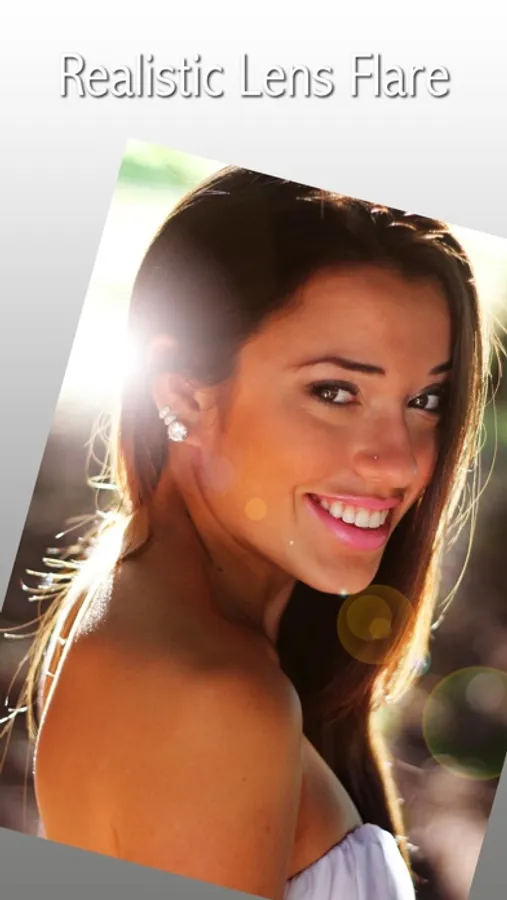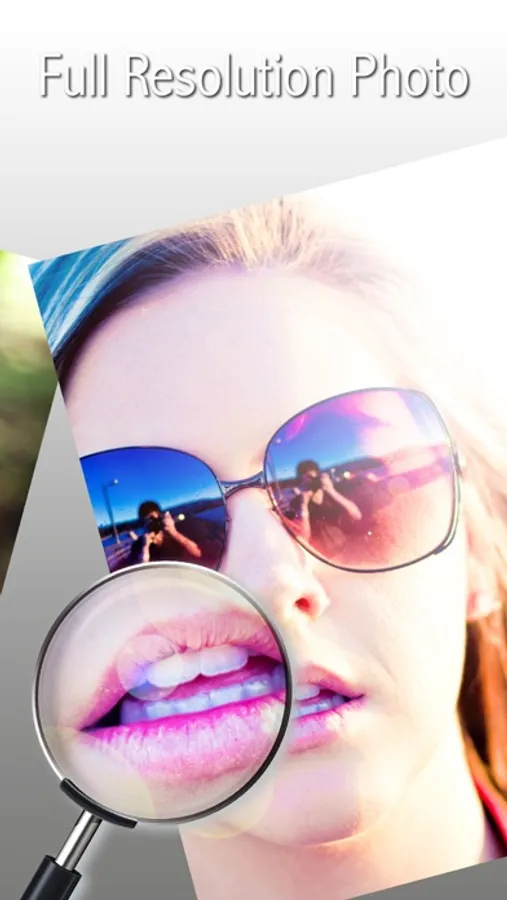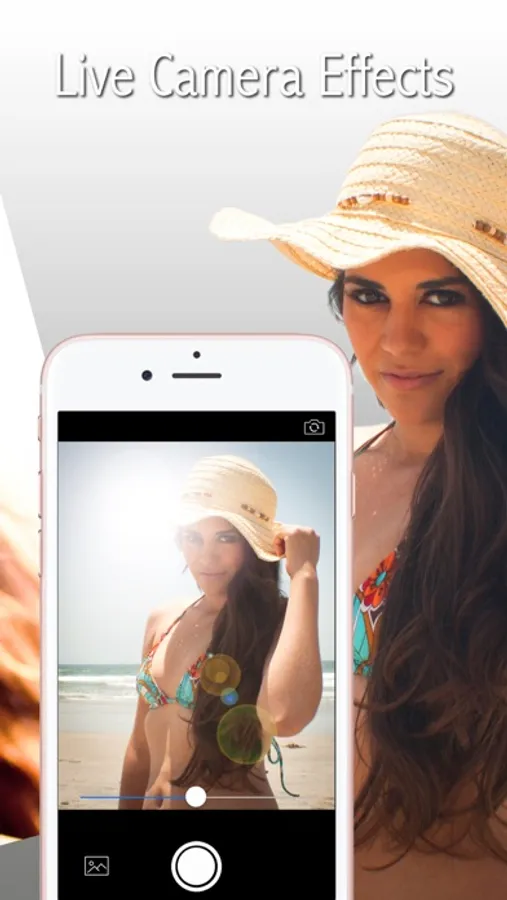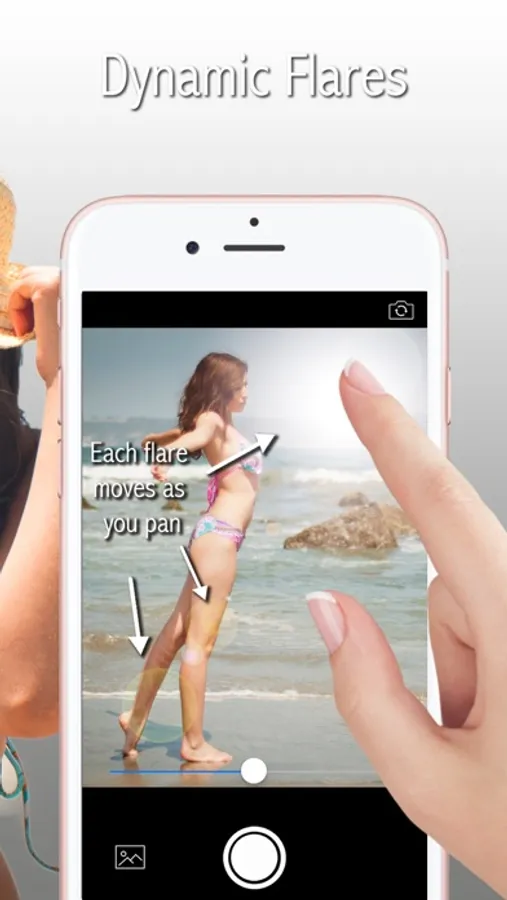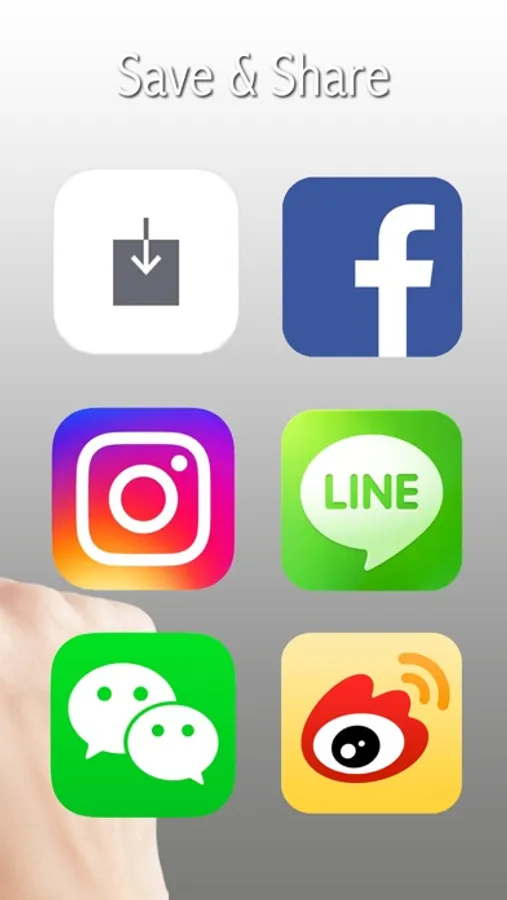About Lens Flare
Never see your photo in the same way again. Add instant lens flare effect to your camera. Show your gorgeous lens flare photo to your friend and they will be surprised!
App features:
• Full resolution photo
• Live camera effects
• Choose from photo album
• Dynamic lens flares
• Save photo to album or share to Facebook, Instagram, WhatsApp, WeChat, Line, Weibo, Flickr, and etc
• Continuous new Lens Flare / features update for the app
We, at Nine Curves, prioritise the speed of our app and ensure user friendliness. Our app is different from others as we promote live camera preview for our filters. The lens flare effect is not simple overlay but with dynamic flares that each flare moves as you pan to create natural and realistic lens flare. At the same time, we did not compromise by making sure we deliver the highest quality photo by outputting full resolution photo.
Contact us at sales@ninecurves.com for any feedback or idea to improve the app.
Don't wait and download now.
Please help to rate or review the app if you like it. Your little action will definitely help small developer like us. =)
Here are some explanation on lens flare from Wikipedia.
"Lens flare is the light scattered in lens systems through generally unwanted image formation mechanisms, such as internal reflection and scattering from material inhomogeneities in the lens. These mechanisms differ from the intended image formation mechanism that depends on refraction of the image rays. Flare manifests itself in two ways: as visible artifacts, and as a haze across the image. The haze makes the image look "washed out" by reducing contrast and color saturation (adding light to dark image regions, and adding white to saturated regions, reducing their saturation). Visible artifacts, usually in the shape of the lens iris, are formed when light follows a pathway through the lens that contains one or more reflections from the lens surfaces. Flare is particularly caused by a very bright light sources. Most commonly, this occurs when shooting into the sun (when the sun is in frame or the lens is pointed in the direction of the sun), and is reduced by using a lens hood or other shade."
App features:
• Full resolution photo
• Live camera effects
• Choose from photo album
• Dynamic lens flares
• Save photo to album or share to Facebook, Instagram, WhatsApp, WeChat, Line, Weibo, Flickr, and etc
• Continuous new Lens Flare / features update for the app
We, at Nine Curves, prioritise the speed of our app and ensure user friendliness. Our app is different from others as we promote live camera preview for our filters. The lens flare effect is not simple overlay but with dynamic flares that each flare moves as you pan to create natural and realistic lens flare. At the same time, we did not compromise by making sure we deliver the highest quality photo by outputting full resolution photo.
Contact us at sales@ninecurves.com for any feedback or idea to improve the app.
Don't wait and download now.
Please help to rate or review the app if you like it. Your little action will definitely help small developer like us. =)
Here are some explanation on lens flare from Wikipedia.
"Lens flare is the light scattered in lens systems through generally unwanted image formation mechanisms, such as internal reflection and scattering from material inhomogeneities in the lens. These mechanisms differ from the intended image formation mechanism that depends on refraction of the image rays. Flare manifests itself in two ways: as visible artifacts, and as a haze across the image. The haze makes the image look "washed out" by reducing contrast and color saturation (adding light to dark image regions, and adding white to saturated regions, reducing their saturation). Visible artifacts, usually in the shape of the lens iris, are formed when light follows a pathway through the lens that contains one or more reflections from the lens surfaces. Flare is particularly caused by a very bright light sources. Most commonly, this occurs when shooting into the sun (when the sun is in frame or the lens is pointed in the direction of the sun), and is reduced by using a lens hood or other shade."
